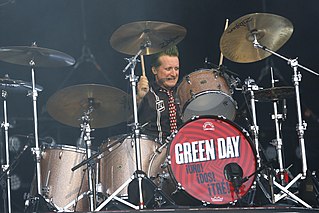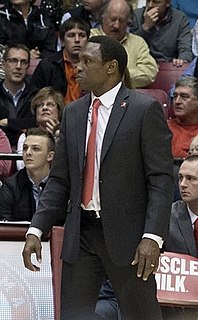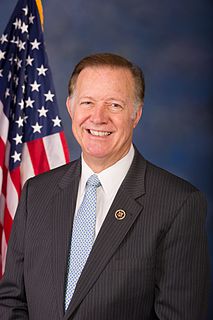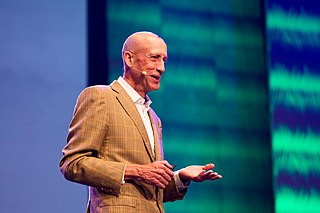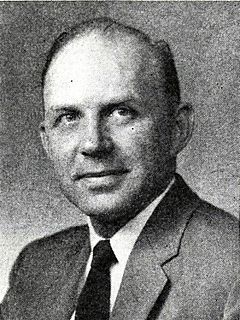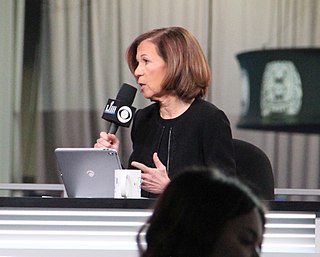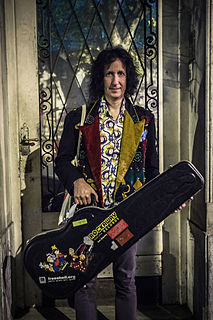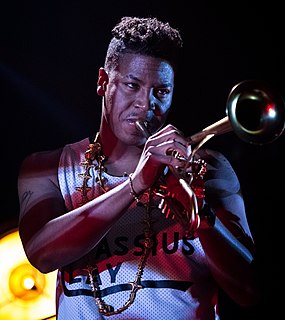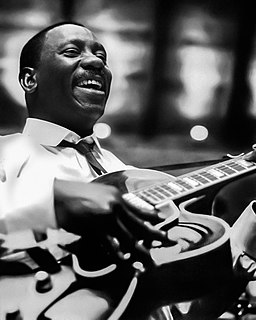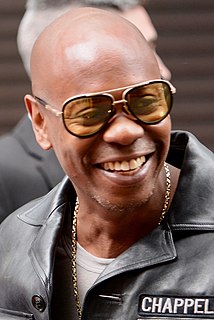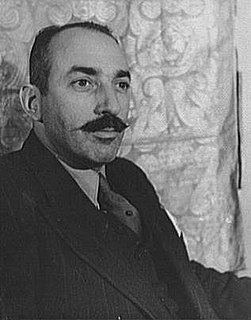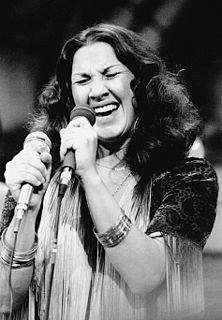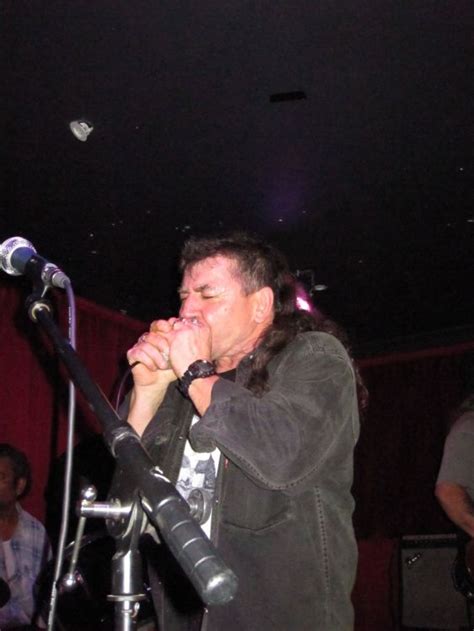Top 989 Sammy Davis Jr Quotes & Sayings - Page 17
Explore popular Sammy Davis Jr quotes.
Last updated on April 20, 2025.
Usually I'm trying to get away from my discography. I don't think I could tear down everything I've done, the structures I've created - you know, like what Miles Davis did eight times in a row, which was destroy every kind of crutch or system he had for making music. That's very, very difficult. When I reflect on my catalog, I'm very proud of it, and I love it, but what I want to do now is completely different. When I don't do something different, I feel like I'm cheating - consciously or unconsciously stealing from myself.
I object. I object to any killing at all. You know, it's terrible what happened and I think retaliation definitely makes sense and it's definitely one option. But, personally, I prefer peace. You know, maybe I'm just being ignorant and shortsighted, you know, it's true I'm not running the government, I'm not running the United States. I just don't think that killing people is a good way to remedy people dying. Martin Luther King Jr. said that you can murder a murderer but you can never murder murder itself.
People really don't care, in some ways, that you have a family. With a high profile job like I have, they just want you to win basketball games. You can do that and still keep your family together. I try the best I can to be at the basketball practices or tennis practices or recitals. In my first year at Dallas my (then 11-year old) son Avery Jr., said, "You know daddy, you're still the best coach in the NBA." I was like, "But I haven't won a playoff game yet." And he said, "That's okay. You're still my daddy." That makes you feel good.
I know my dear brother, President [Barack] Obama, has a bust of Martin King right there in the Oval Office, but the question is are is he going to be true to who that Martin Luther King, Jr., actually is? King was concerned about what? The poor. He was concerned about working people. He was concerned about quality jobs. He was concerned about quality housing. He was concerned about precious babies in Vietnam, the way we ought to be concerned about precious babies in Afghanistan and precious babies in Tel Aviv and precious babies in Gaza.
You simply cannot give to the world all that you have to give to the world if you do not remain true to your own "selfish" desires. You have a unique set of precious values that can only be fulfilled by pursuing what drives you the most: your passions and dreams. Could Thomas Edison have tended to the downtrodden as Mother Teresa did? Could Albert Einstein have preached salvation as Martin Luther King Jr. did? Could Abraham Lincoln have built cars like Henry Ford? Always, the masses benefit from the individuals who insist on marching to the beat of their own drummer.
President J. Reuben Clark, Jr., a modern prophet, said over and over again that the Lord would never let one of his Saints who had been faithful in the payment of tithes and offerings go without the necessities of life” (Marion G. Romney, “The Blessings of an Honest Tithe,” New Era, Jan.-Feb. 1982, 45). Members who faithfully pay tithing are promised spiritual blessings as well. “I think it is not well known in the Church that payment of tithing has very little to do with money. Tithing has to do with faith
Al Davis is a legend and his contribution and influence on the game of football, the National Football League, and the Oakland Raiders has been profound for decades. To view his contribution and influence on a season-by-season basis does not make sense: he has dominated the industry for a lifetime. I can't tell you how he may have impacted or guided other individuals during their careers but I can speak from personal experience. He inspires me to be better every day than I was the day before.
Jazz stopped being creative in the early '80s. After your acoustic era, where you had the likes of the Miles Davis Quintet, when it gets to the '70s it started being jazz fusion where you had more electronic stuff happening, then in the '80s they started trying to bring back the acoustic stuff, like Branford Marsalis and the Wynton Marsalis & Eric Clapton sextet. It started dying down from there. Miles was still around in the '80s and he was still being creative; he was playing Michael Jackson songs and changing sounds, but a lot of people were still trying to regurgitate the old stuff.
I'm definitely not a laptop/midi/abelton guy. But there is a lot of music I like. I really like Bach organ music. I really like Chopin piano music. I really like Wendy Carlo's electronic music. I really like Miles Davis and John Mclaughlin jazz style. So I'm not only an old-school rocker, but I have to admit that I'm going to be listening to The Doors, Rolling Stones, Iggy Pop, David Bowie and Bob Dylan many times a week.
In California, Jim Jones even staged a shooting of himself. The lesson of this was two-fold. One, that he was a god - he could heal himself. He had these magic powers. A large segment of his congregation came from a Pentecostal tradition that believed in faith healing and already believed Jones had the power to cure others. And two, the "shooting" made him seem important. Civil rights leaders were being gunned down - MLK, Jr., Medgar Evers, Malcolm X - and he longed to be considered as heroic and important as they were.
The problem is not the claycourt. The problem is, you know, rather something to do with the conditions on center court. Because I've played well on Suzanne Lenglen, on the other courts. But the Chatrier court is really, really big, and I just haven't had enough play on it. Maybe I come here next year and play a week on this court, if I can, if the French Federation lets me. We'll see. I've been playing well in other tournaments, in Davis Cup on clay. So for me it's not the surface, it's rather maybe the court.
There never has been a desire on the part of the government that the struggle of Black people in America should be linked to the struggle of our people in every part of the earth. Every leader that was international in scope and in reach became the target of the government - Paul Robeson, Marcus Garvey, W.E.B. DuBois, Martin Luther King Jr., Malcolm X, Kwame Ture and the Honorable Elijah Muhammad. Any Black leader who would try to connect us to our brothers and sisters in Africa and Asia were seen as a threat and became a target.
I was a really good youth boxer, and I enjoyed the sport very much. Once I actually started to play the trumpet, it is very similar to boxing. Most of the great trumpet players boxed: Miles Davis was a boxer, Wallace Roney is a boxer, Terrence Blanchard is a boxer. In a boxing ring, no one can help you. It's just you and the other guy, and your job is to get him out of there, to outscore him in the best sense of it. When you learn to box, the first thing they teach you is to protect yourself at all times, and some people also learn that they like being hit.
I am grateful for the support of those who want to see more women in Congress to better represent our country and provide leadership and solutions to DC. Ron Barber has been asleep at the switch on issues that are extremely important to Southern Arizona, such as fighting for the A-10 and Davis-Monthan. That is why Nancy Pelosi is stepping in to try to save his job in November. Sometimes the best man for the job is a woman that is why I fully intend on replacing Congressman Barber on Election Day.
Most of the time when I have met artists who have meant a lot to me, the experience has been well above expectation. People like Iggy, Lou Reed, Jerry Lee Lewis, Black Sabbath, Nick Cave, Hubert Selby Jr, Billy Gibbons, Al Pacino, John Lee Hooker, James Brown, Johnny Cash etc. have been really great to me. What strikes me is most of the time, the bigger the celeb/legend, the more polite and cool they are. It's the insecure ones who treat you like they're doing you a favor by shaking your hand.
You know what the reward is to capture Saddam. You don't even need to capture Saddam, just say where he is. It's $25 million. This is what I love about our priorities. We spend $25 million trying to get rid of Saddam Hussein. The Republicans spend $50 million trying to get rid of Gray Davis. It doesn't seem quite right.
No one writes a story like Lydia Davis. In the years since she began publishing her lyrical, extremely short fiction, she has quietly become one of the most impactful influences on American writers, even if they don't know it. That's largely because she makes economy seem so easy. You could read several of her stories into a friend's voicemail box before you were cut off (and you should). You could fit one of her stories in this column. Some you could write on your palm.
You know, John Coltrane has been sort of a god to me. Seems like, in a way, he didn't get the inspiration out of other musicians. He had it. When you hear a cat do a thing like that, you got to go along with him. I think I heard Coltrane before I really got close to Miles [Davis]. Miles had a tricky way of playing his horn that I didn't understand as much as I did Coltrane. I really didn't understand what Coltrane was doing, but it was so exciting the thing that he was doing.
At the time, I was reading this Miles Davis book, and he was talking about coming to New York right after he was in high school. It kind of made me feel like, "Yeah." I didn't want to go to college; I wanted to do stand-up. And I figured, "What's the point of doing stand-up around DC? I'm always going to be under-appreciated there because I started there." I felt like I was strong enough and unique enough that I should give it a big leash to shine. New York was the best thing that ever happened to me as a comedian.
I haven't had a cramp since '99. That was my only time, in Davis Cup, when I was panicky. I was young. I'm very proud of that. Never pulled out. Never had cramps. Never lost very much because of fitness, especially later on in my career where I knew I've put in the hard work. I've done that. I've been very fortunate and clever as well to understand how I need to work, when I need to work. So I'm very happy to have stayed injury free for so long. I hope I can still maintain a few good years on the tour. I really hope so.
Miles Davis came in a couple of days and said, "Oh, man, I love that. Keep going." So he said, "Let me know when you need trumpet." And he came in, and he was sitting there, and I was very intimidated, because now he's going to play the trumpet on something that I wrote." He starts to play, and I go, "That's not right, but I don't know how to tell him it's not right." Finally he goes, "When are you going to tell me what to do?" He said, "This is your music. I know you know how it's supposed to sound. Stop fooling around. We don't have time."
Everything we know has its origin in questions. Questions, we might say, are the principal intellectual instruments available to human beings. Then how is it possible that no more than one in one hundred students has ever been exposed to an extended and systematic study of the art and science of question-asking? How come Alan Bloom did not mention this, or E. D. Hirsh, Jr., or so many others who have written books on how to improve our schools? Did they simply fail to notice that the principal intellectual instrument available to human beings is not examined in school?
Well, I've heard a lot of people, but I think I would say a Brazilian musician named Hermeto Pascoal was one of my biggest influences. Through the years he mastered the keyboards. He use to play the organ Hammond B3, flute, saxophone, percussion and guitar. He is one of the most complete musicians that I ever met. Not too long after we came to the United States, Airto Moreira introduced him to Miles Davis, who recorded three of Hermeto's compositions on his album "Live Evil.
I love music/sounds that have a passion, a fire, an energy I can connect with. I love angry sounding beat tracks, dark sounds for sure but I also love delicate sounds, they both connect I think. Discharge back in 1980 was a big explosion in sound for me to hear the anger and the energy, still an influence on me. Miles Davis has been an influence, as much as John Coltrane, Brian Eno, John Hassel. So much around me has influenced me: my everyday life, everything around me, the family, etc.... It has an impact.
For the most part, 99 percent of jazz is boring; you've heard it before. People aren't doing anything creative that's extremely modern. They tend to always be like "Let's do a tribute to Miles Davis!" All the new albums are tributes to history. It becomes too much at a certain point, it leaves us waving like "Hello? I'm alive, I'm here!" You know? So I really do feel like it needs some spice, it needs to be relevant to today's times, today's people, today's sound.
Look at what Al Davis has done. He hired the first Hispanic head coach (Tom Flores), the first black head coach (Art Shell), and now me. It's not a coincidence. People in sports talk a lot about inclusiveness and giving people opportunities. While they talk, I only see one person doing it. Al is the last person on Earth who'd do this for a pat on the back. A pat on the back would annoy him. He does it for the right reasons.
I heard of Martin Luther King Jr. when I was 15 years old. I heard of Rosa Parks. And I met Dr. King in 1958 at the age of 18. I met Rosa Parks ... But to pick up a fun comic book - some people used to call them "funny books" - to pick this little book up, it sold for 10 cents, 12 pages or 14 pages? 14 pages I digested. And it inspired me. And I said to myself, "If the people of Montgomery can do this, maybe I can do something. Maybe I can make a contribution."
Most Americans who made it past the fourth grade have a pretty good idea who Thurgood Marshall, Rosa Parks, and Martin Luther King, Jr., were. Not many Americans have even heard of Alice Paul, Howard W. Smith, and Martha Griffiths. But they played almost as big a role in the history of women’s rights as Marshall and King played in the history of civil rights for African-Americans. They gave women the handle to the door to economic opportunity, and nearly all the gains women have made in that sphere since the nineteen-sixties were made because of what they did.

